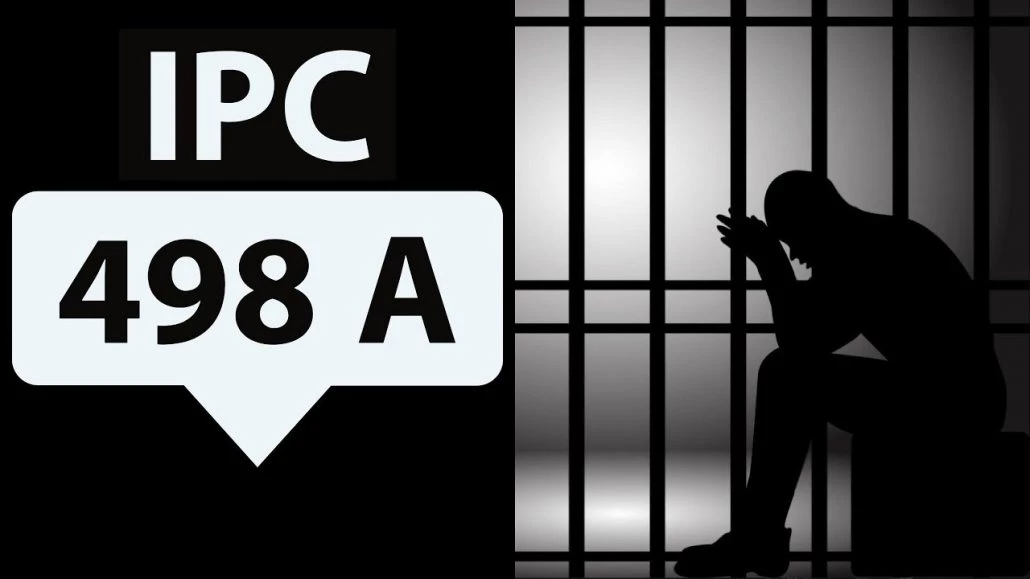Facing a 498-A police complaint can be daunting and bewildering. The possibility of immediate arrest and the non-bailable nature of the offence can be incredibly stressful. However, knowing that you have rights is crucial, and the Indian legal system provides safeguards. One of the most vital tools in such a situation is the option to apply for anticipatory bail. This proactive legal step can shield you from arrest before the investigation begins.
Anticipatory bail is a legal protection that can be sought if you believe you might be arrested. You can apply for it before any actual arrest happens. Typically, applying for anticipatory bail is advisable as soon as you become aware of a potential 498-A complaint against you. Once granted, anticipatory bail is usually adequate for a specific period, allowing you some peace of mind while the investigation unfolds.
However, dealing with all of this can be complicated. That’s where Monica Garkhel, a seasoned lawyer specialising in 498-A cases, comes in. Monica knows the ins and outs of the law and understands how delicate and tricky these situations can be. She’ll carefully review your case, weigh the risks, and recommend the best action.
In other words, Monica Garkhel can be your lifeline in a challenging situation. She’s here to help you navigate the legal complexities and protect your rights.
Let’s get into the details of anticipatory bail for 498-A Police Complaint in the blog sections below to know more!
What is 498A?
Section 498A of the Indian Penal Code (IPC) is a law that was made in 1983 to help women who are facing cruelty from their husbands or relatives.”Cruelty” in the section is defined as:
- A– any willful behaviour that is likely to push a woman to take her own life or put her life, limb, or health in danger—whether mental or physical;
- B– harassing a woman to force her or anyone connected to her to comply with an unlawful demand for property or valuable security or as retaliation for the woman’s failure to comply with the demand.
Who Can Be Prosecuted:
Under Section 498A, the husband and any relative of the husband can be prosecuted. This includes parents, siblings, in-laws, and other close family members.
What Constitutes Cruelty:
The definition of cruelty under Section 498A is comprehensive and encompasses various forms of abuse inflicted on a woman by her husband or his relatives. This includes:
- Physical Abuse: Actions like beating, kicking, or using physical force.
- Mental Abuse: Behaviors such as taunting, humiliation, threats, or isolation.
- Emotional Abuse: Verbal abuse, constant criticism, and emotional manipulation.
- Economic Abuse: Depriving the woman of financial resources or denying her access to her own money.
- Dowry Harassment: Demanding dowry from the woman or her family and harassing them for not meeting dowry demands.
Punishment:
The punishment for cruelty under Section 498A can include imprisonment for up to three years and possibly a fine.
Is 498A Bailable Or Non-Bailable?
Section 498A of the Indian Penal Code is classified as a non-bailable offence. This designation carries essential implications:
Bail Restrictions:
Under Section 498A, individuals accused of cruelty towards women cannot obtain bail from the police or lower courts. Only higher courts or the High Court possess the authority to grant bail, and they carefully consider several factors before doing so. These factors typically include:
- Severity of Alleged Cruelty: The courts assess how severe the alleged cruelty is in the case.
- Tampering with Evidence: They determine if there is a strong likelihood that the accused may tamper with evidence or influence witnesses.
- Safety Concerns: The woman’s and her family’s safety is a significant consideration.
- Criminal Record: The accused person’s criminal record is also considered.
It’s important to note that while Section 498A is classified as non-bailable, the Supreme Court of India has issued guidelines to prevent misuse of Section 498A and ensure that accused individuals are not unfairly denied their right to bail. These guidelines encompass:
- Preliminary Inquiry: The police must conduct a preliminary inquiry before registering a case under Section 498A to determine if there is a prima facie case of cruelty.
- Family Counseling: In cases where reconciliation is possible, the court may direct the couple to undergo family counselling.
- Bail Provisions: The Supreme Court has eased the bail process for husbands and their relatives in Section 498A cases unless there is compelling evidence of cruelty.
When Should You Apply For Anticipatory Bail In The 498A Police Complaint?
You can apply for anticipatory bail before the courts if you believe a case under 498A IPC may be filed. If the court is satisfied with your lawyer’s arguments in your favour, it may grant you interim bail. This bail may include conditions, such as appearing before the police when required for investigation.
You can apply for anticipatory bail before the Session Court or High Court. It’s best to apply to the Session Court first and then the High Court if it denies it.
However, applying for anticipatory bail is a complex and sensitive matter, and seeking legal advice from a qualified lawyer is suggested as soon as possible.
What Is The Procedure To Get Anticipatory Bail In The 498A Case?
If you find yourself facing a 498A case and want to secure anticipatory bail, here’s a breakdown of the procedure you’ll typically follow:
- Consult with Your Lawyer: Work closely with your lawyer to draft an anticipatory bail application. Sign this application, a formal request to the court for protection against arrest.
- Include Key Documents: Your application must include an affidavit detailing your side of the story and a copy of the FIR (First Information Report) filed against you. Additionally, attach any other relevant documents that support your case.
- Choose the Right Court: Depending on the circumstances and legal advice, you can file the anticipatory bail application in the Sessions Court or the High Court.
- Attend the Hearing: Send someone, preferably accompanied by your lawyer, to represent you during the court hearing for your anticipatory bail application.
- Timing Matters: It’s generally recommended to first file for anticipatory bail in the Sessions Court. The Sessions Court can issue a pre-arrest notice, usually within 7 or 5 days before and after the FIR registration.
- Consider Bail Amount: Be prepared for the possibility of a bail amount, which can range from Rs. 10,000 to Rs. 50,000, depending on the circumstances of your case.
- Protection During Trial: If your anticipatory bail is granted, you will be protected from arrest until the completion of the trial.
Securing anticipatory bail is a legal process that requires careful preparation and adherence to the legal guidelines. Working closely with your lawyer and following these steps can help you navigate the procedure effectively in a 498A case.
Conclusion
It can feel like a threat is hanging over you when you have a 498-A police complaint against you. It can make you feel scared and uncertain. It’s easy to get lost in the storm of legal terms, the chance of getting arrested, and the damage to your reputation.
But Monica Garkhel is a bright spot amid all this chaos.
She has helped many people escape false accusations and is here to help you find your way. Contact Monica right now and take charge. You’re not alone, and with the right help, you can get through anything.


